Information at the Core of Science, Society and Economy
In all areas of economy and society information plays a central role: We are surrounded by an increasing number of intelligent technical information systems which are equipped with capabilities like interaction, environmental awareness and self-adaptation.
The KIT Center Information · Systems · Technologies (KCIST) investigates and designs complex adaptive technical systems for a secure and efficient handling of information, based on competences like algorithmics, software engineering, cloud computing and scientific computing, secure communication systems and big data technologies as well as intuitive human-machine interfaces, human centered robotics, industrial robotics and automation. Hence, it bundles interdisciplinary competences across KIT-divisions, in particular from informatics, economics, electrical and mechanical engineering, information technology as well as social science. The major objective of the center is to promote research and innovation as well as technology transfer between KIT and its partners in academia and industry both at a national and an international level.

03.02.2026
Prof. Sami Haddadin, Mohamed bin Zayed University of Artificial Intelligence, Abu Dhabi held an online RIG-KCIST lecture on February 03, 2026, 4:00pm.
Further information
20.01.2026
Prof. Dr. Andreas Kugi, Scientific Director at the Austrian Institute of Technology and Professor of Complex Dynamical Systems at the Technische Universität Wien (TU Wien) gave a talk in the fully occupied Atrium of InformatiKOM I, KIT on January 20, 2026, 5:30pm.
Further information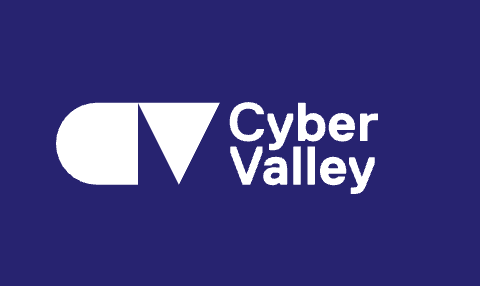
14.01.2026
On January 13, 2026, Dr. Florian K. Mayer, Managing Director of Cyber Valley, visited KIT. In addition to a comprehensive tour of the laboratory with demonstrations in the "High-Performance Humanoid Technologies (H²T)" lab led by its director, Prof. Dr. Tamim Asfour, in-depth discussions were held with the President of KIT, Prof. Dr. Jan S. Hesthaven, as well as the Vice Presidents Prof. Dr. Thomas Hirth, Vice President for Transfer & International Affairs, and Prof. Dr. Oliver Kraft, Vice President for Research, Teaching and Academic Affairs at KIT.
Further information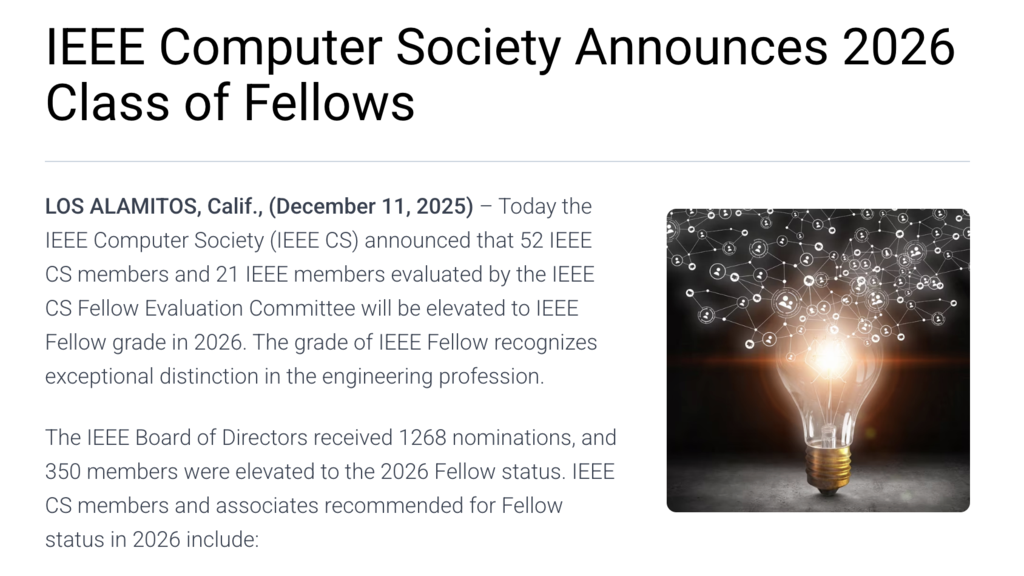
01.01.2026
The IEEE Board of Directors elevated Prof. Dr. Tamim Asfour to IEEE Fellow, effective 1 January 2026, for his contributions to humanoid mechatronics and cognitive humanoid robotics.
Further information
09.12.2025
The inaugural RIG Bootcamp on Foundational Behavior Models took place November 24-28, 2025 at KIT, bringing together 16 PhD candidates from 11 German universities for an intensive week of collaborative research. With foundational behavior models reshaping the robotics landscape through billions in global investment, coordinated collaboration across Germany's research institutions has become essential to maintain competitiveness in this rapidly evolving field. The bootcamp addressed this challenge by creating space for researchers to leverage their collective strengths.
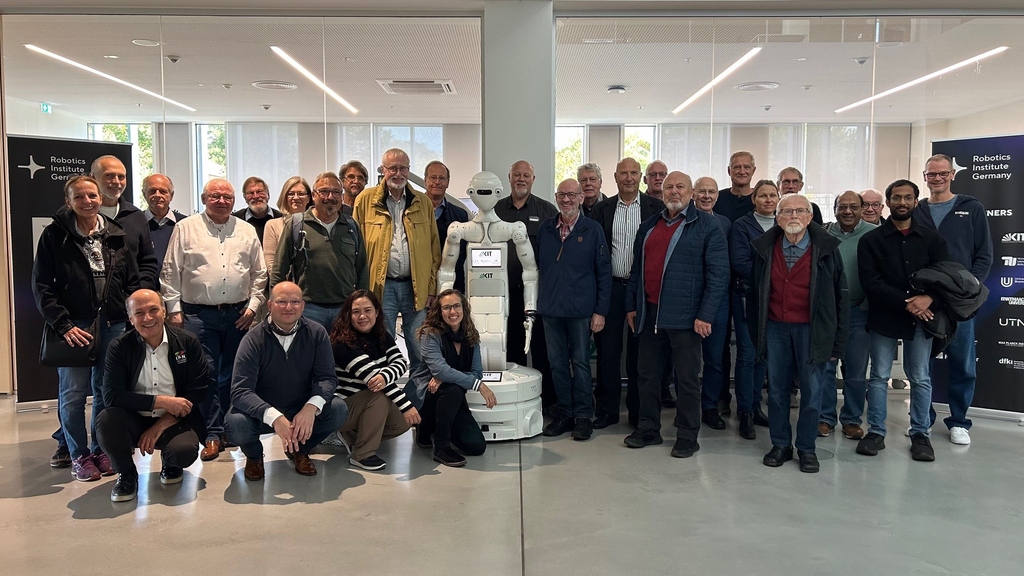
09.10.2025
What happens when AI truly serves humanity? Nearly 40 readers of Germany’s leading science publisher, Spektrum der Wissenschaft, visited KIT to explore this fascinating question. KIT professors presented their groundbreaking research, placing humans at the center of artificial intelligence. Visitors experienced live demonstrations of humanoid robots that learn by observing people, discovered how AI can make technology more accessible to everyone, and learned how artificial intelligence is revolutionizing language processing and materials research.
Further Information (only German)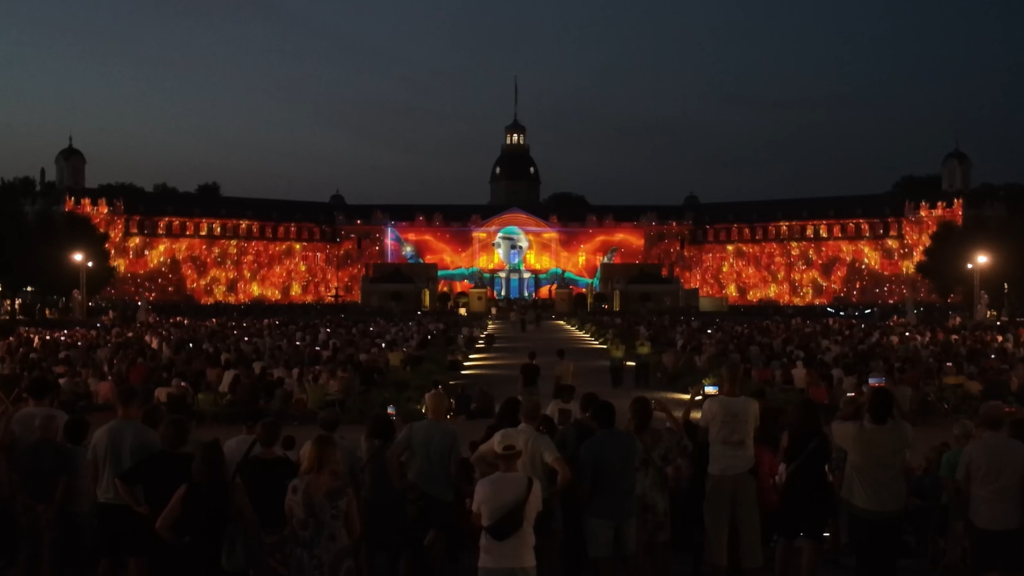
14.08.2025
The ten-minute feature entitled “Science for Impact” was designed by “Los Romeras,” a Spanish group of artists who have previously presented their art at the Schlosslichtspiele Light Festival. The film shows in an artistic manner how varied science is at KIT. It is meant to arouse curiosity for the research done here.
The contribution visualizes research from the following KIT centers, which financed it: Energy, Climate and Environment; Information · Systems · Technologies; Elementary Particle and Astroparticle Physics; Health Technologies; Materials in Technology and Life Sciences; Mobility Systems; and Humans and Technology.
Further Information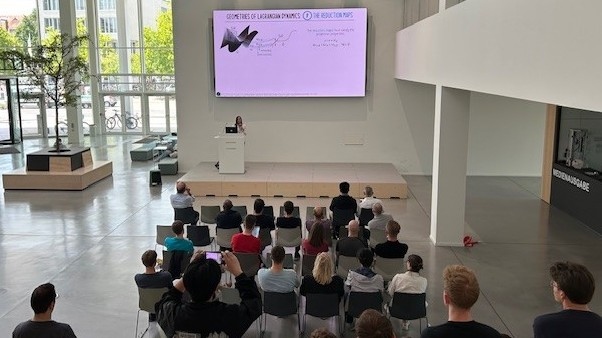
31.07.2025
Asst. Prof. Dr. Noémie Jaquier, KTH Royal Institute of Technology, Sweden, gave a talk about "The geometries of Lagrangian dynamics" on Tuesday, July 29, 2025, 13:00 in the Atrium of InformatiKOM I, Bldg. 50.19, Adenauerring 12.
Further Information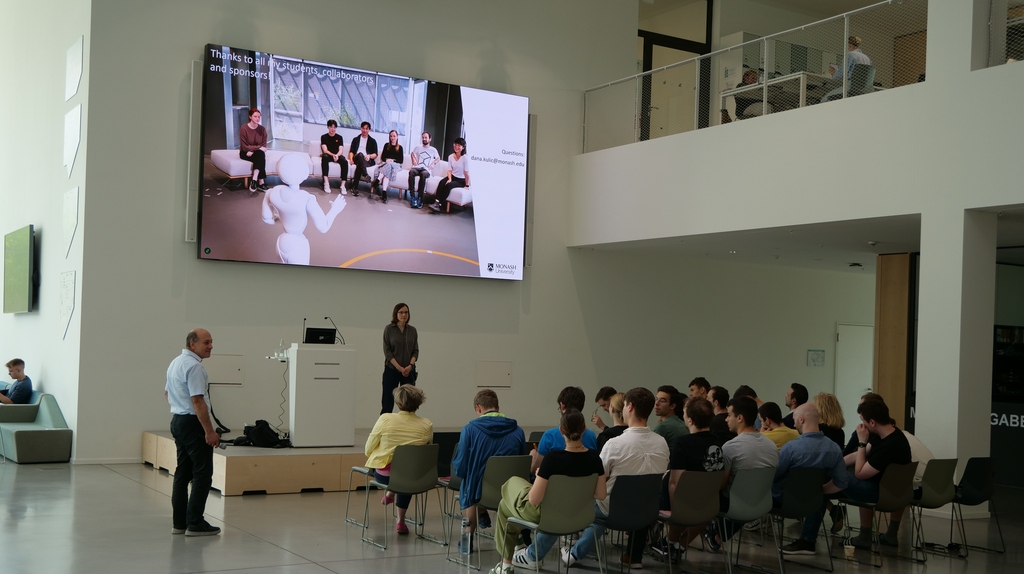
14.07.2025
Prof. Dana Kulić, Monash University, Australia, gave a talk about "Effective Human Robot Teaming" on Friday, July 11, 2025, 13:00 in the Atrium of InformatiKOM I, Bldg. 50.19, Adenauerring 12.
Further Information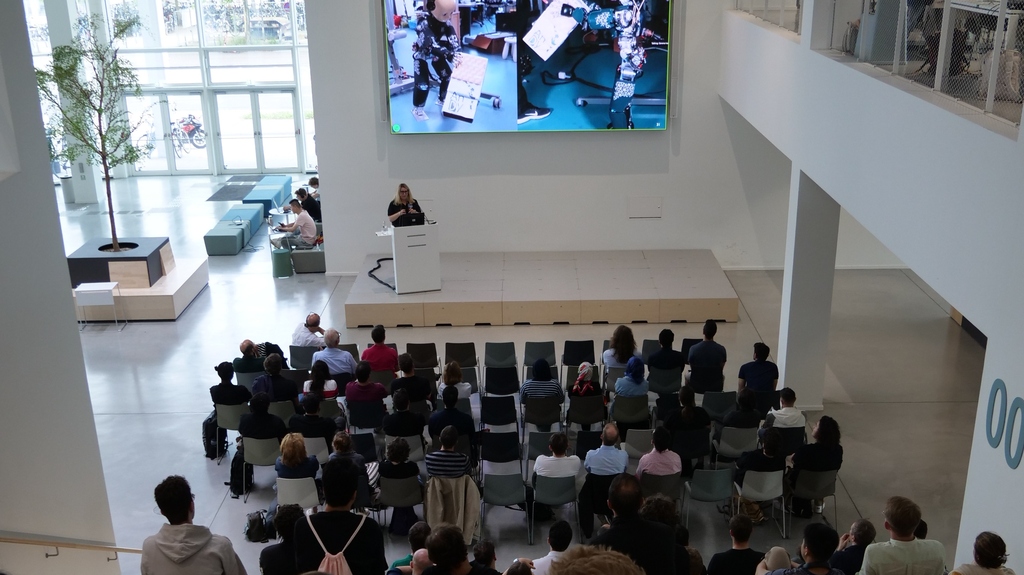
14.07.2025
Prof. Dr. Serena Ivaldi, Inria center of the University of Lorraine, gave a talk about "The new Human Centered Robotics team at Inria Nancy: from humanoids to exoskeletons" on Wednesday, July 9, 2025, at 11:00 in the Atrium of InformatiKOM I, Bldg. 50.19, Adenauerring 12.
Further InformationTo the NEWS ARCHIVE
